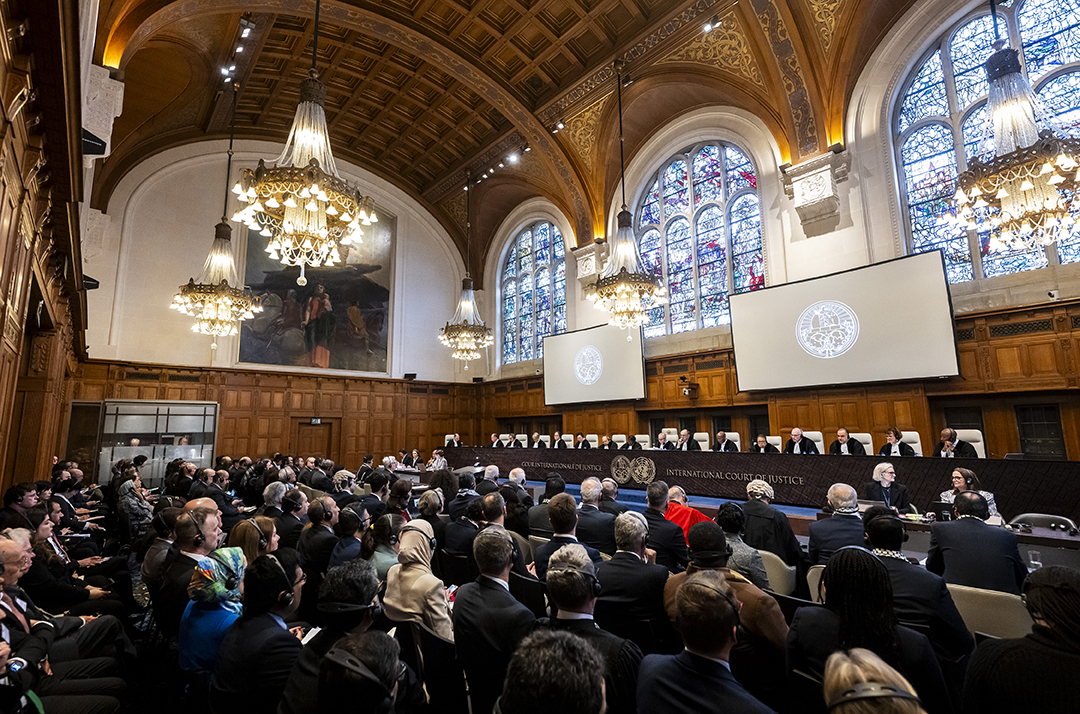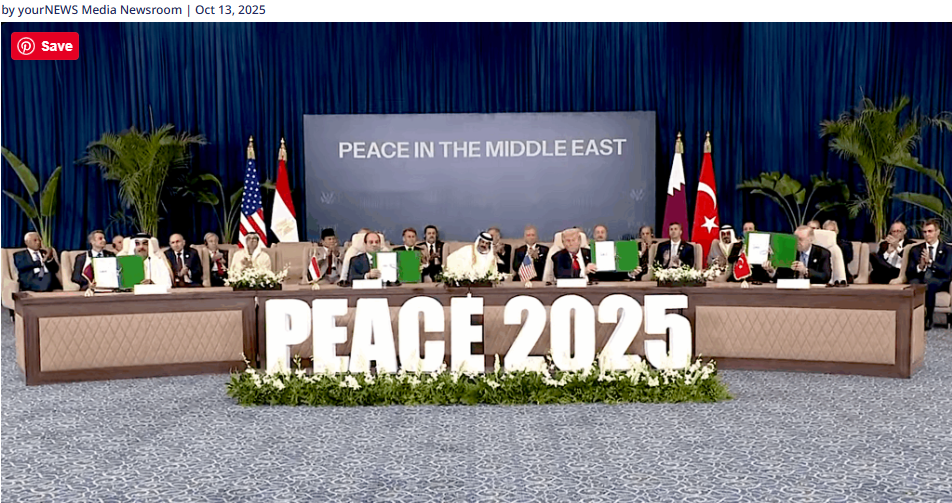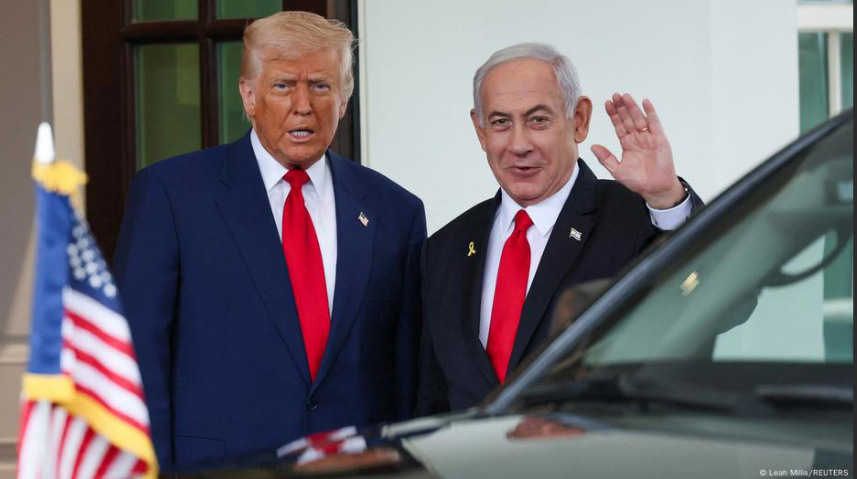By Andrew Tucker (director thinc.)
The International Court of Justice (ICJ) issued its ruling today on the latest application by South Africa for additional provisional measures under the Genocide Convention. South Africa asked the Court to order Israel to immediately cease its military operations in Gaza including the Rafah operation, and to withdraw completely and unconditionally from the Rafah Crossing and the entirety of the Gaza Strip.
The Court’s findings
The Court “observes that Israel has not provided sufficient information concerning the safety of the population during the evacuation process, or the availability in the Al-Mawasi area of the necessary amount of water, sanitation, food, medicine and shelter for the 800,000 Palestinians that have evacuated thus far. Consequently, the Court is of the view that Israel has not sufficiently addressed and dispelled the concerns raised by its military offensive in Rafah.”
It ”finds that the current situation arising from Israel’s military offensive in Rafah entails a further risk of irreparable prejudice to the plausible rights claimed by South Africa and that there is urgency, in the sense that there exists a real and imminent risk that such prejudice will be caused before the Court gives its final decision.”
The Court’s ruling
Accordingly, the ICJ ordered today as follows (13 votes to 2 – Vice-President Sebutinde and Judge ad hoc Barak dissenting):
(1) Reaffirms the provisional measures indicated in its Orders of 26 January 2024 and 28 March 2024, which should be immediately and effectively implemented;
(2) Indicates the following provisional measures:
The State of Israel shall, in conformity with its obligations under the Convention on the Prevention and Punishment of the Crime of Genocide, and in view of the worsening conditions of life faced by civilians in the Rafah Governorate:
(a) Immediately halt its military offensive, and any other action in the Rafah Governorate, which may inflict on the Palestinian group in Gaza conditions of life that could bring about its physical destruction in whole or in part;
(b) Maintain open the Rafah crossing for unhindered provision at scale of urgently needed basic services and humanitarian assistance;
(c) Take effective measures to ensure the unimpeded access to the Gaza Strip of any commission of inquiry, fact-finding mission or other investigative body mandated by competent organs of the United Nations to investigate allegations of genocide;
(3) Decides that the State of Israel shall submit a report to the Court on all measures taken to give effect to this Order, within one month as from the date of this Order.
Commentary
- This is another example of the Court’s highly problematic tradition of creative ambiguity in drafting. Did the Court decide that Israel must immediately cease the Rafah operation in toto? Not quite. The order states that Israel must halt its military offensive in Rafah only to the extent that it “may inflict on the Palestinian group in Gaza conditions of life that may bring about its physical destruction, in whole or in part.” In other words, it seems that the Court allows Israel to continue the operation in Rafah as long as it does not bring about the “destruction” of the Palestinian people in Gaza.
- But inevitably, this nuance will be ignored and the ruling is already being be interpreted in the media and by South Africa and its supporters as a victory, and an absolute prohibition on the Rafah campaign.
- This is remarkable given that it has not been proven that Israel intends to commit genocide – and intent is a conditio sine qua non of the crime of genocide. In other words, the Court is arguably restricting Israel’s capacity to defeat Hamas and rescue the hostages (who have been taken in gross violation of international law), simply because the Court believes Israel has not proven that the 800,000 Palestinians who have been evacuated from Rafah are receiving enough water, sanitation, food, medicine and shelter. This is an inversion of the burden of proof. See Judge Barak’s Dissenting Opinion.
- As Judge Barak convincingly shows, it is also a confusion of international humanitarian law (IHL) with the law of genocide. It is not the Court’s task to enforce the laws of armed conflict in the context of a genocide case.
- In any event, it is not Israel’s (sole) responsibility under IHL to make sure that the residents of Rafah have enough sanitation, water etc. Why is Egypt not being held equally responsible for the residents of Rafah, given Rafah’s close proximity with Egypt?
- Judge Barak: “In order to prevent and repel the threat posed by Hamas and free the hostages, Israel has to carry out military operations in Rafah and in the entirety of the Gaza Strip. It has both a right and a duty to prevent and repel these threats and attacks. As stated by its highest authorities, Israel has only one aim: to defeat Hamas and bring the hostages back to Israel.”
- The Court’s reliance on UN reports is alarming, to say the least. As Judge ad hoc Barak stated: “The Court’s treatment of evidence regarding the conditions for the indication of provisional measures for protecting rights under the Genocide Convention is particularly concerning. The Court relies primarily on statements made by United Nations officials on social media and on press releases issued by relevant organizations… It relies on these statements and press releases without even inquiring into what kind of evidence they draw upon. The Court’s approach is in stark contrast with its previous jurisprudence, in which it has stated that “United Nations reports [are] reliable evidence only ‘to the extent that they are of probative value and are corroborated, if necessary, by other credible sources’”. In the present case, the statements and press releases noted by the Court have simply not been corroborated.”
- The Court’s legitimacy is being severely tested by these genocide cases. It is incomprehensible that the Court is allowing itself to be manipulated to prevent Israel from defeating Hamas and rescuing the hostages. The Court is clearly being manipulated by South Africa and Nicaragua, on behalf of the PLO and its supporters, to restrict the capacity of a sovereign UN member state from taking necessary and proportionate action to defend its citizens against violence and terror.
- The Court’s rulings are also restricting Israel’s capacity to prevent Hamas from carrying our further acts to pursue its stated intent to commit genocide of the Jewish people. This is an inversion of justice. Again to quote Judge Barak: “The key to ending this war does not lie in asking the Court to intervene in this conflict by making unsubstantiated allegations of genocide against Israel. The key to ending this war lies in the hands of Hamas. Hamas has started the war and can finish it by releasing the hostages and by fully respecting the security of the State of Israel and its citizens.“
Judge Barak: “The road taken by the Court is a dangerous one. It weakens the régime of the Genocide Convention by using it (or misusing it) to arbitrate an armed conflict. How can States trust the Court with the settlement of disputes concerning the interpretation and application of multilateral conventions, if they are used for purposes that are entirely removed from the original intention of the parties?”
The Court’s ruling can be accessed here:



